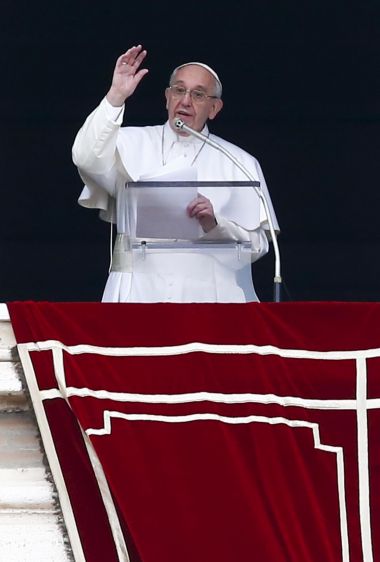Pope Francis slams fake Christians who do not practice what they preach and turn their backs on the needy

Pope Francis has denounced "fake Christians" who treat religion merely as an "accessory" instead of as an opportunity to render service to humanity.
"Merely talking leads to vanity, to faking being a Christian. But no, one is not a Christian this way," Pope Francis said during his Feb. 23 homily Mass in the Chapel of the Casa Santa Marta in the Vatican.
According to the Religion News Service, Pope Francis cited the Gospel of Matthew, where Jesus warned those who are faking Christianity that they will receive judgment from God if they do not practice what they preach, and turn their backs on those who are most in need.
"To be a Christian means to do the will of God. And on the last day, because all of us will have one, that day, what shall the Lord ask us? Will he say: 'What you have said about me?' No! He shall ask us about the things we did," he said.
Pope Francis stressed the "evangelical dialectic between saying and doing" even as he encouraged people to be more sincere about their faith.
He said parents should not only say that they are Catholics; they must also set a good example and teach their children about the gospel and help shape their religious journeys.
He concluded his homily with the prayer: "May the Lord give us this wisdom to understand well where lies the difference between saying and doing, and teach us the way of doing and help us to go down that way ... May the Lord teach us this way."
Meanwhile, Pope Francis is featured in a book for children that answers such questions as "What did God do before the world was made?", Reuters reported.
That question was put to him by 8-year-old Ryan K., from Canada. Like the other questions in the book, it was written above a simple drawing—in this case, Ryan's rough sketch of a bearded God standing on a globe surrounded by gold stars.
The pope's answer, written in a few sentences on the opposite page, was that God "created time" but that most of all "he loved."
The book, called "Dear Pope Francis," was a brainchild of Father Antonio Spadaro, a priest and editor of the Italian Jesuit journal Civilta Cattolica who was the first person to interview Francis after his election in 2013.
Spadaro brought the pope the 31 drawings and questions by children from around the world and Francis dictated his responses in simple language.











